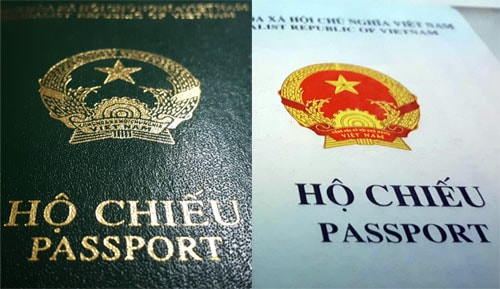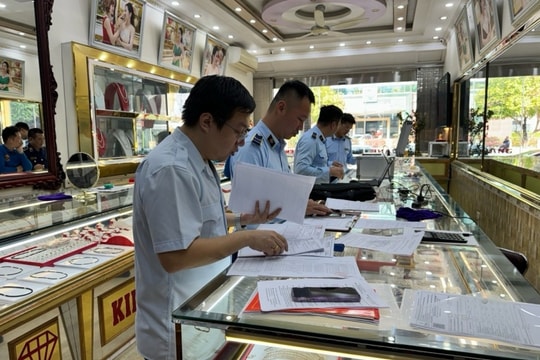Ministry of Public Security proposes attaching electronic chips to passports
The electronic chip will store specific biometric information such as fingerprints, photos, and personal information.
 |
| Current passports are made of paper, have a blue plastic cover and do not have a place to attach a chip. Photo: Phuong Son |
On November 10, the Ministry of Public Security completed the Draft Law on Exit and Entry and submitted it to the Government and collected comments from departments, branches and people.
The draft has many new points. Article 7 stipulates that diplomatic passports, official passports, and ordinary passports are equipped with electronic chips to store biometric information specific to the passport applicant such as fingerprints, photos, personal information, and digital signature of the issuing authority.
The Ministry of Public Security explained that the Government has approved the project of "producing and issuing electronic passports", but there is currently no document regulating electronic passports. Therefore, the development of the Law on Exit and Entry is a necessary condition to create a legal basis for the issuance, management and use of electronic passports.
To serve the purpose of collecting information data for the National Database on citizens' exit and entry, the draft adds the content of "collecting fingerprints" of passport applicants (diplomatic passports, official passports, ordinary passports). The validity of ordinary passports is still 10 years.
The draft does not require passport applicants to prepare and submit documents, but only need to fill out a declaration form or apply online. For convenience, first-time passport applicants must submit their declarations at the immigration management agency of the provincial or municipal police. Second-time passport applicants can submit their declarations directly at the most convenient location or at the Immigration Management Agency of the Ministry of Public Security, regardless of whether the passport is valid or expired.
People can also directly receive the results or request the immigration authority to send the results to the requested address.
If passed by the National Assembly, the law will take effect from July 1, 2020.



.jpg)




